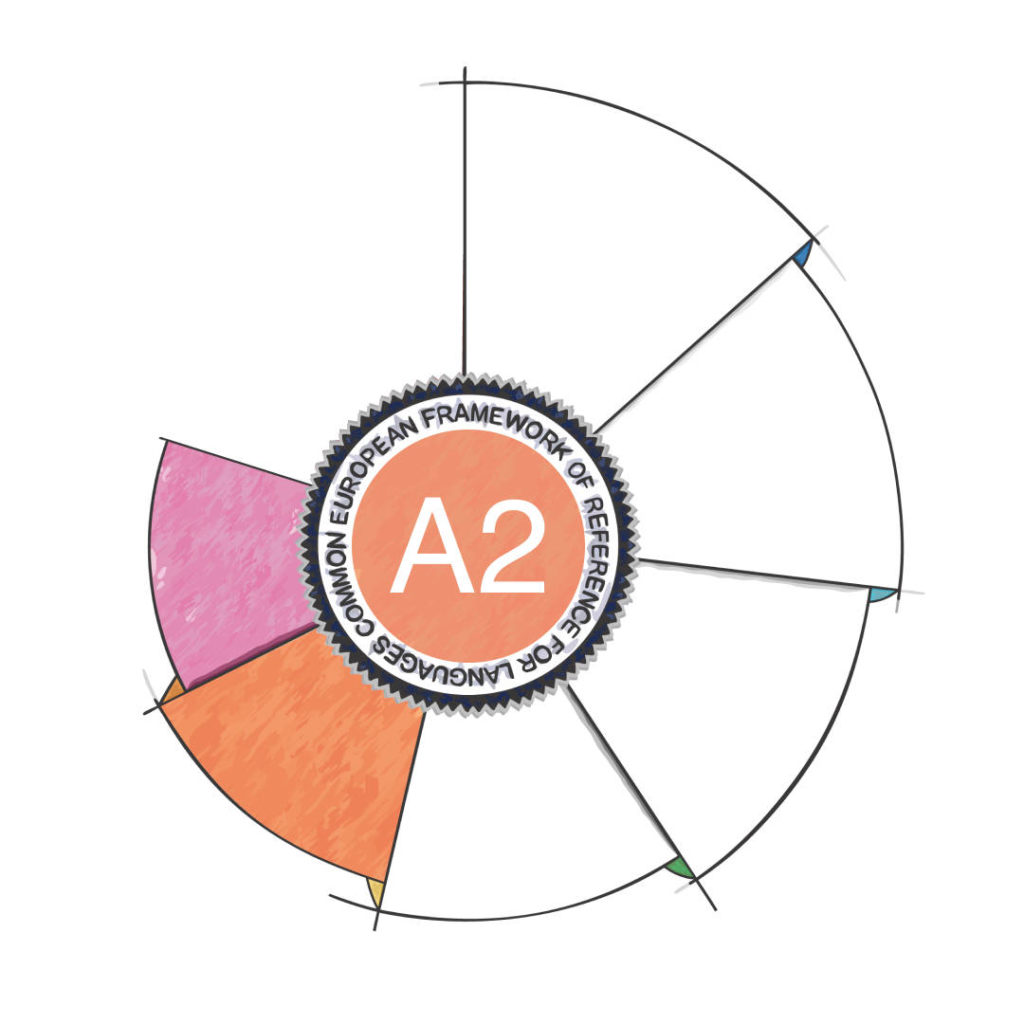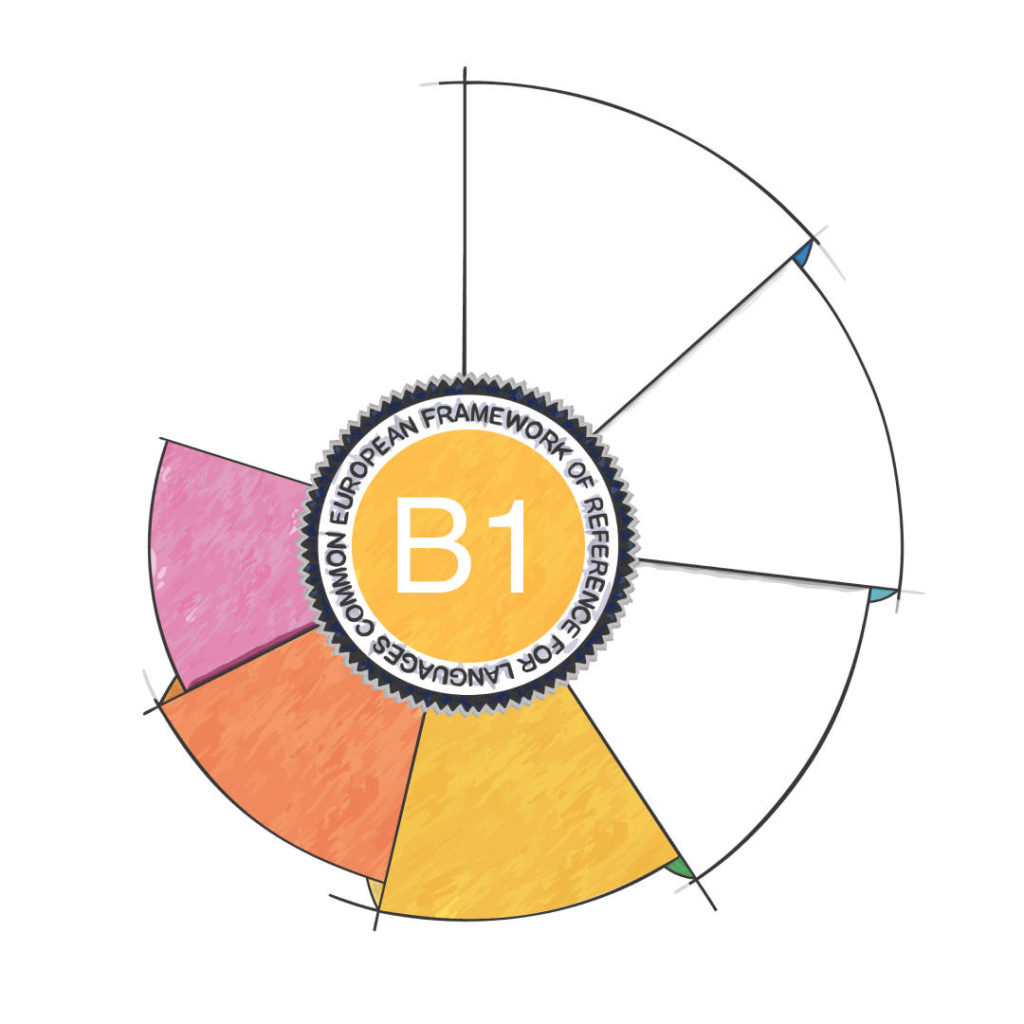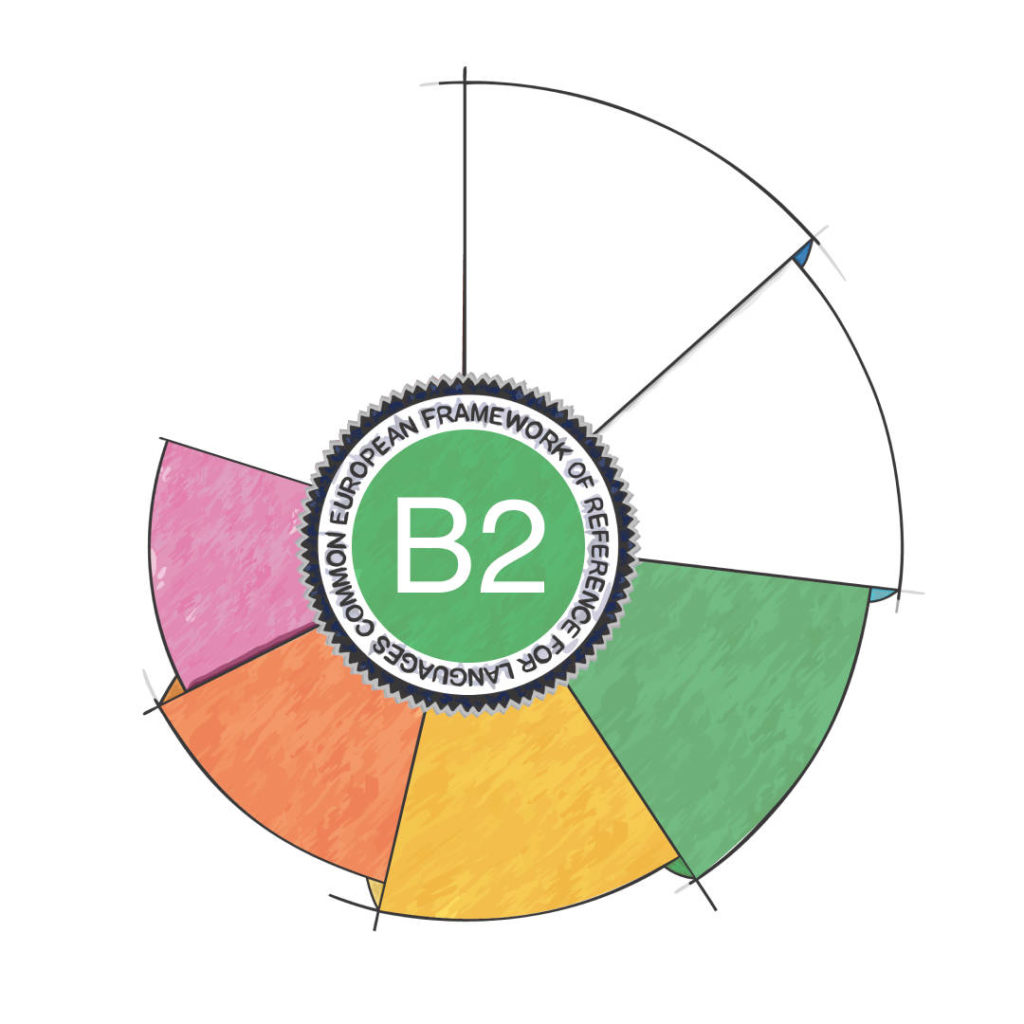Levels description
- Home
- Levels description

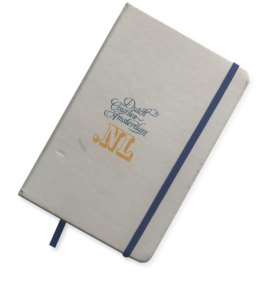
What level should I choose?
Our comprehensive study offer covers all language levels – whether you are looking to take an official ‘Dutch as a Foreign Language’ exam (NT2-I, NT2-II), the Inburgering (Integration) Exam or IBEX, the BIG-register exam (for medical professionals), or if you just want to learn Dutch for your work or as part of your self-development, we are here to help.
To register for a course above the introductory (A0-A1) level, you will need to have a brief intake assessment – this is free of charge and can be easily arranged via phone/Zoom or at school. It takes about 25 minutes and it will allow us to recommend a suitable study option for you.
Below you can find detailed descriptions of the topics covered in each level, to give you a better understanding of what to expect. Don’t hesitate to get in touch if you have any questions!
Beginners Course
A0 → A1 course
Learning Dutch is just like learning any other language – with dedication and determination you are guaranteed to achieve your goals, and we are excited to help you on your way! The first step is the hardest – you will encounter strange rules and even stranger exceptions to those rules, but don’t be discouraged and just trust the process!
One of the peculiarities of the Dutch language is the word order – if you don’t learn the correct way to form sentences, then it will be difficult to handle more complex topics. We spend quite some time on this, to make sure that things are well understood, before moving further.
Content
We cover the three most important tenses: present, future, and an introduction to the present perfect (PP), which is mostly used when speaking about the past.
You have most likely already heard the typical Dutch “G” sound – this is used when forming the present perfect tense, and is employed very often in conversation. Also taught in this course are negation, interrogative sentences, the possessive form, prepositions, articles, and other topics essential for conversation.
Result
Provided that you have attended all the lessons and devoted a minimum amount of time to homework (1,5 – 2 hours/day for intensive courses and 15-30 minutes/day for evening courses), you will be able to handle basic conversations in Dutch, implement the most important grammatical rules, and understand basic spoken and written Dutch that can be used in daily life or (informal) work situations. Your grammar will be at level A1, and you will have a vocabulary of 300-500 words.
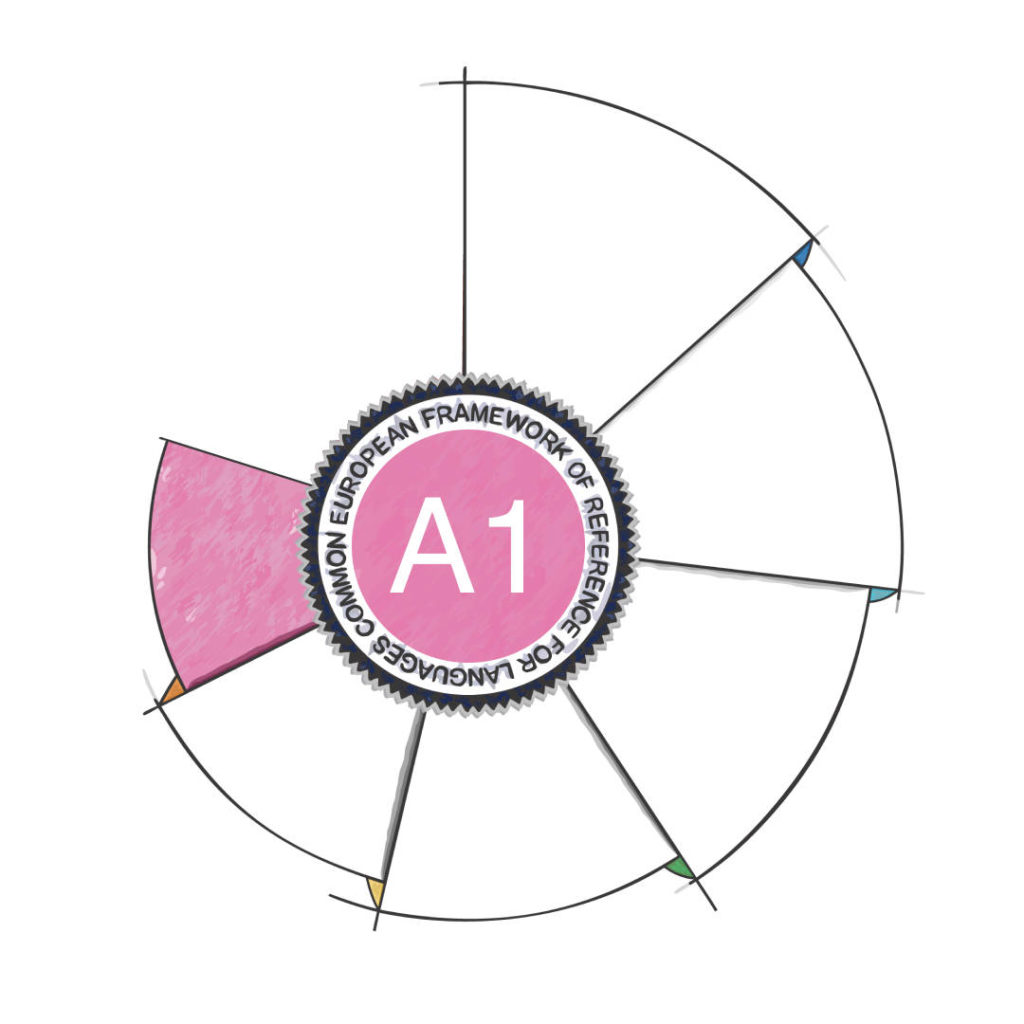
Intermediate course
A1 → A2 course
The Intermediate Dutch course (A1-A2) is exclusively designed for those who are already familiar with basic vocabulary and grammar.
Content
The starting point of this course is the Present Perfect (PP) tense, known in Dutch as Het Perfectum. Why do we say: ‘ik BEN naar Engeland geweest’ and ‘ik HEB boodschappen gedaan’? What is the difference between: ‘heb gefietst’ and ‘ben gefietst’? After this, we will talk about the inversion of a phrase when starting with a condition of time or place (‘Morgen ga ik naar Spanje’ vs. ‘Ik ga morgen naar Spanje’). Although the theory is simple, putting it in practice is tricky, and this topic is essential for learning correct Dutch.
The most common forms of the Simple Past tense (SP), known in Dutch as Het Imperfectum, will be introduced as well. This tense can seem more difficult because of the irregular verb forms.
Another important subject is that of separable verbs. Using separable verbs in the present tense can be quite complicated. For example: ‘Ik neem de sleutels mee’ (verb: meenemen, to take with you) and ‘ik neem de music op’ (verb: opnemen, to record). But no stress – we use it more often in the future tense: ‘wil je de sleutels meenemen?’ or in the present perfect tense: ‘Ik heb de sleutels meegenomen’. The reason we want you to get used to separable verbs is that you will be confronted with them in all kinds of Dutch texts, and since you will be able to read more and more, it will be useful for you to recognize them.
Other topics that will be taught in this level are: ‘om … te’, reflexive verbs, a review of negation, and finally, the subordinate phrase (omdat, als, toen).
Result
Provided that you have attended all the lessons and devoted a minimum amount of time to homework (1,5 – 2 hours/day for intensive courses and 15-30 minutes/day for evening courses), you will have reached an A2 level of grammar with an A1+ level of vocabulary.
Moving up to the A2 level requires about 2000-2500 words of vocabulary, which takes somewhat longer than the period of the A1-A2 course (this depends as well on how much time you dedicate to your own self-study).
UPPER-Intermediate course
A2 → B1 course
The upper-intermediate Dutch course (A2 – B1) is suitable for those who have a solid base in Dutch grammar (main phrases, interrogative sentences, phrases starting with a condition of time or place). Extensive knowledge and active use of vocabulary is essential.
Content
The starting point of this course is a review of the Present Perfect (PP) tense/Het Perfectum. We will explain why we say: ‘ik BEN naar Engeland geweest’ and ‘ik HEB boodschappen gedaan’, and what the difference is between ‘heb gefietst’ and ‘ben gefietst’. While going through the theory of the Present Perfect, the emphasis will be placed on the exceptions to the rule which are formed without the prefix ‘ge-’ such as: ontmoet (have met) and verdiend (have earned).
After this, we will briefly review the topic of inversion (‘Ik ga morgen naar Spanje’ vs. ‘Morgen ga ik naar Spanje’) and, more extensively, the Simple Past (SP)/Het Imperfectum. We will also go through the theory of knowing when to use the PP or SP.
A very important topic that we are going to introduce in this course is the subordinate phrase (ondergeschikte zin). You will learn the most important words for forming these phrases: ‘omdat’, ‘als’ and ‘toen’. In combination with the past tense, these topics are integral to this course. Keep in mind that once you master the subordinate phrase, you surpass 80% of foreign’ speakers in terms of speaking Dutch correctly.
Last but not least, we introduce the verb ‘zouden’ (should/would/could). It is not a difficult topic since it is used similarly in English, but in our experience, Dutch learners tend to avoid using it. The intention is to teach you how to use this verb in a more solid way (‘It would be nice’ : ‘het zou leuk zijn’…)
In addition to all of the above, there is time in this course to repeat some grammar topics from the previous level such as separable verbs, reflexive verbs, and negation.
Result
Provided that you have attended all the lessons and devoted a minimum amount of time to homework (1,5 – 2 hours/day for intensive courses and 15-30 minutes/day for evening courses), you will have reached a B1 level of grammar, with an A2-A2+ level of vocabulary (2000-2500 words).
Moving up to the B1 level requires 4000-4500 words, which takes somewhat longer than the period of the A2-B1 course (this also depends on how much time you dedicate to your own self-study).
Gevorderden cursus
B1 → B2 course
Op dit niveau, moet je gewoon Nederlands proberen te spreken. Dus nu in het Nederlands…
Startniveau / voor wie?
De cursus voor gevorderden is voor mensen die deze tekst zonder veel problemen in het Nederlands kan lezen. Grammaticaal heb je al veel kennis van het Nederlands. Je spreekt redelijk makkelijk, maar het gaat nog niet vloeiend genoeg. Daarnaast maak je soms nog wat fouten met de volgorde. En spontaan het woordje ‘er’ gebruiken, kan je nog niet, of is nog steeds een probleem… Deze cursus is ook goed voor mensen die (willen gaan) werken in een Nederlandse omgeving, maar daar nog (te veel) Engels spreken. Afhankelijk van het niveau en de individuele wensen, kan in deze cursus ook een klein begin worden gemaakt met de voorbereiding op het NT2 staatsexamen.
Inhoud
De nadruk in deze cursus ligt op snel en vloeiend spreken. Daarbij ligt de nadruk op de juiste volgorde van een zin. Interactie tussen de studenten wordt gestimuleerd. Ook is het de bedoeling dat elke student een presentatie geeft over een onderwerp dat hem of haar interesseert.
Grammaticaal worden de laatste puntjes op de ‘i’ gezet. Een essentieel en groot onderwerp is het gebruik van ‘er’ versus ‘het’. En vooral de combinatie ervan! De enige vertaling voor ‘I agree’ is ‘ik ben het ermee eens’. Daarnaast bespreken we de voltooide tijd met meerdere werkwoorden en het plusquamperfectum. Tot slot wordt een aantal veelgebruikte uitdrukkingen behandeld.
Resultaat
Als je redelijk structureel je huiswerk hebt gemaakt (1,5-2 uur per dag voor de intensieve cursus of dagelijks 15-30 minuten voor de avondcursus), zit je grammaticaal gezien op niveau B2. Je kan bijna correct spreken en de snelheid is redelijk goed. In principe spreek je dusdanig dat je over elk onderwerp kan meepraten. Je vocabulaire zit rond B1 (3000 woorden), al kan dit per individuele student verschillen. Maar voor iedereen geldt: nu nóg meer vocabulaire leren en leren gebruiken. Daarvoor bieden we een B2 conversatiecursus aan. Je bent dus nog niet klaar (helaas)!
Vloeiend nederlands
B2 → conversatie cursus
Op dit niveau, moet je gewoon Nederlands proberen te spreken. Dus nu in het Nederlands…
Startniveau / voor wie?
De B2 conversatiecursus is gericht op studenten die alle grammatica tot en met B2 hebben gedaan. Grammatica wordt op verzoek uiteraard nog uitgelegd, maar maakt officieel geen deel meer uit van het curriculum. Enige uitzondering hierop zijn de werkwoorden met een vast prepositie en de implicaties die dit heeft (‘luisteren naar’ wordt ‘waar luister je naar’ en ‘ik luister er elke dag naar’).
De cursus bereidt ook expliciet voor op het staatsexamen (programma 2). Het boek dat hiervoor wordt gebruikt is Nederlands op Niveau (Coutinho). We gebruiken dit boek omdat het focust op vocabulaire van B1 naar B2. Je leert precies de woorden die jullie nog niet kennen. Afhankelijk van het gemiddelde startniveau van de groep behandelen we per cursus twee hoofdstukken (hoofdstuk 1 en 2, of 3 en 4, of 5 en 6).
Inhoud
De nadruk in de cursus ligt op het leren en automatiseren van nieuw vocabulaire dat nodig is voor het staatsexamen (programma 2). In elk hoofdstuk worden nieuwe woorden behandeld, op basis van behoorlijk moeilijke teksten. Naast teksten krijg je ook vaak opdrachten om filmpjes te bekijken. Standaard invuloefeningen kan je zelf controleren, de antwoorden staan achter in het boek. Vragen om uitleg is natuurlijk altijd mogelijk. Wij focussen zoveel mogelijk tijdens de lessen op de spreekoefeningen.
Resultaat
Als je redelijk structureel je huiswerk hebt gemaakt (1,5-2 uur per dag voor de intensieve cursus of dagelijks 15-30 minuten voor de avondcursus) heb je genoeg progressie gemaakt. Grammaticaal heb je de laatste puntjes op de i gezet. Wat vocabulaire betreft heb je aan het eind van het boek het vocabulaire geleerd dat nodig is voor het Staatsexamen, programma II (B2). Passief weet je het, actief gebruik gaat steeds beter. Goed herhalen, misschien een paar privélessen die expliciet zijn gericht op de spreekoefeningen van het examen. En dan moet het lukken. Succes!
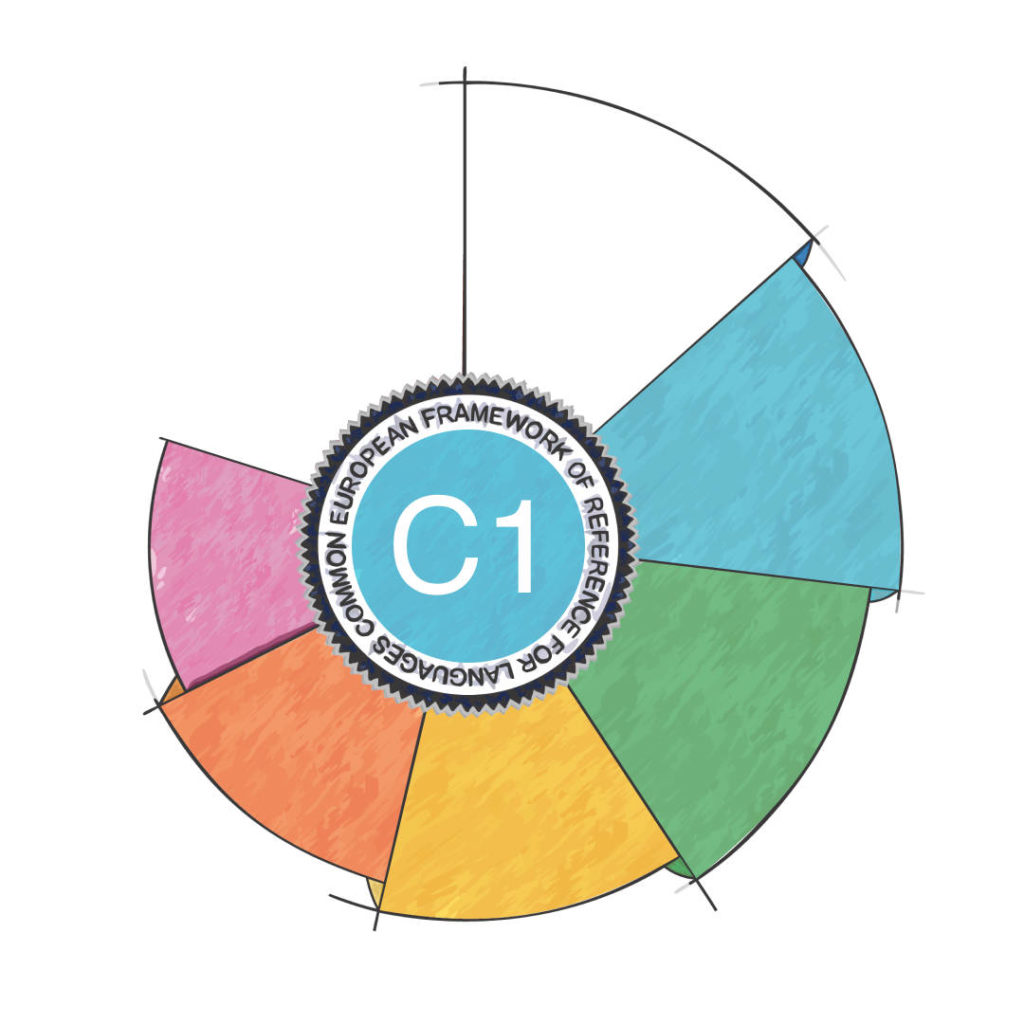
Huiswerk
Het is belangrijk dat je in deze cursus je huiswerk maakt, vooral de filmpjes en teksten, als voorbereiding voor de volgende les, zijn belangrijk.
Not sure which course to choose?
Check out our course and level descriptions, send an information request, or get in touch with us via phone or email.
If you want to drop by the school, we will be very happy to welcome you – just make sure to make an appointment beforehand. Tot snel!
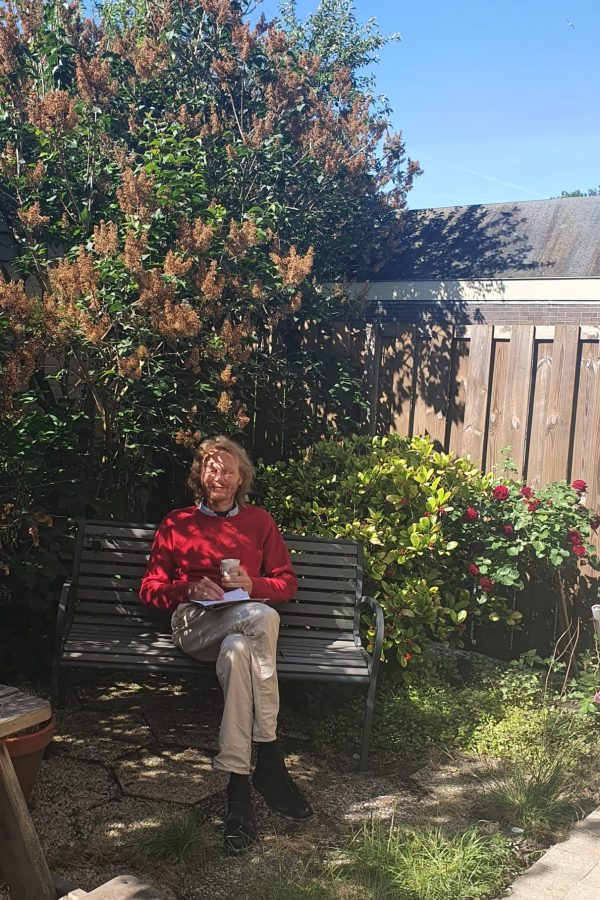


Dutch Courses Amsterdam in a nutshell:
Over 15 years experience teaching Dutch
10,000+ students thus far
Creative and inspirational study materials
Passionate, experienced, and friendly teachers
Informal and conducive study environment
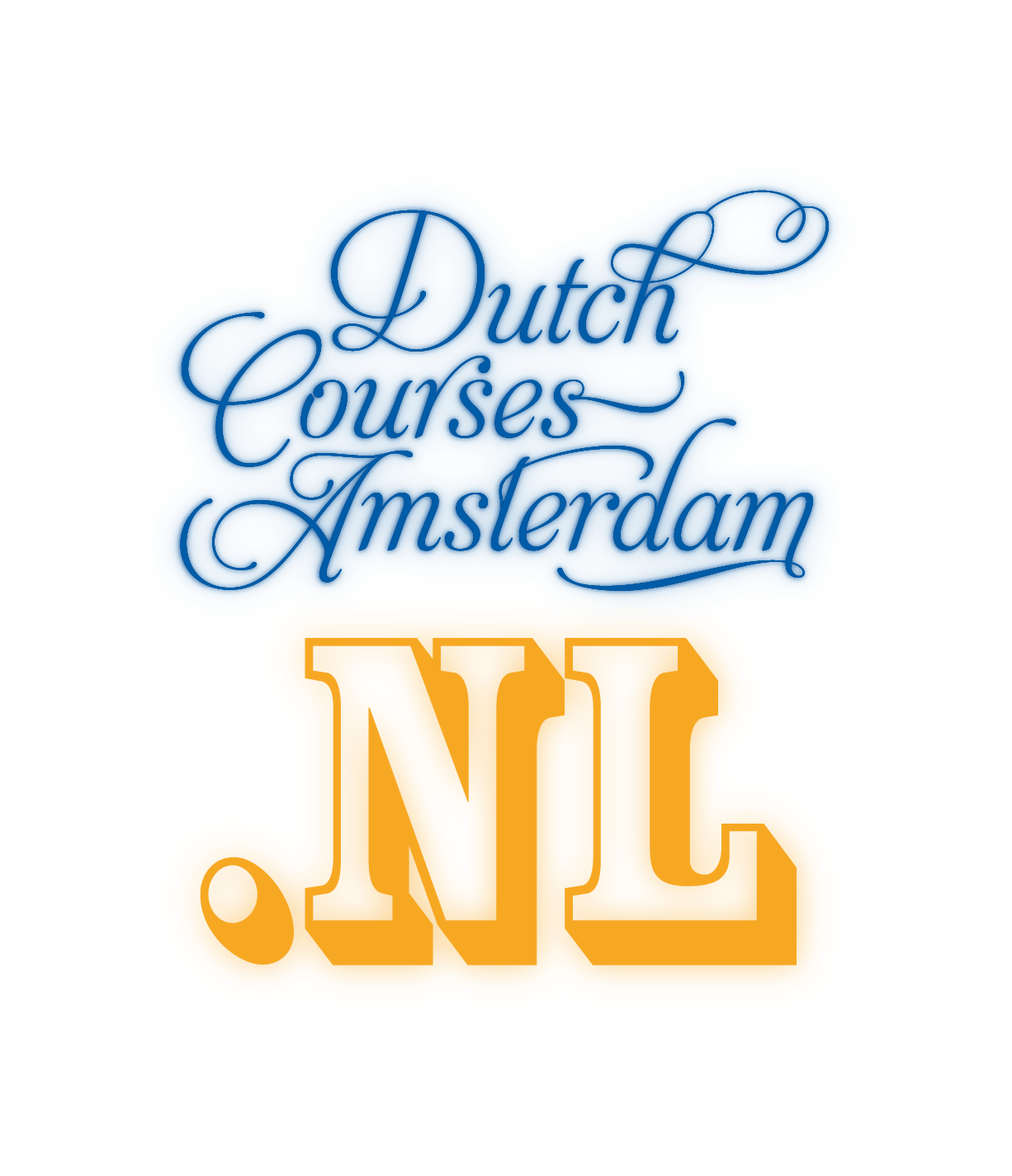 Dutch Courses Amsterdam
Dutch Courses Amsterdam
Admiraal de Ruijterweg 175, Amsterdam
4,9 373 reviews
-
Mark Dickinson ★★★★★ a month ago
I found the environment at Dutch Courses Amsterdam very easy and comfortable to learn in. Teachers were knowledgeable and friendly. The learning material was informative and helpful, I learned some valuable … More principles and cultural idiosyncrasies.
I would recommend Dutch Courses Amsterdam for they enjoyable course and positive experience! -
Yossi Capua ★★★★★ a month ago
I took an A2B1 course. The course was great, with a very strong emphasis on speaking. The group was small and nice, but most importantly, had a very uniform starting level, which allowed for good progress. … More -
Nadya Triwindu ★★★★★ 3 weken geleden
I’ve enjoyed my time studying A2-B1 intensive course. The teachers were helpful and explained the lessons clearly. Sometimes we had weird questions but they still answered it. I had a great time and made … More friends. I’m definitely gonna recommend people to study here! -
Henrik ★★★★★ een maand geleden
Guter Aufbau des Unterrichts (Grammatik + Konversation), gute Klassenräume, nette Lehrer, netter Chef und entspannte Atmosphäre. Und gelernt hat man auch viel! Ich komme gerne wieder 🙂 -
André Nunes ★★★★★ een maand geleden
I successfully completed the A0-A1 level of Dutch at Dutch Courses Amsterdam, and I have nothing but compliments to make. Everyone was very helpful, the teachers Rémon and Marja were 100% supportive and … More available for us all the time, and I will definitelly continue my Dutch journey with them. Totally worth it.

